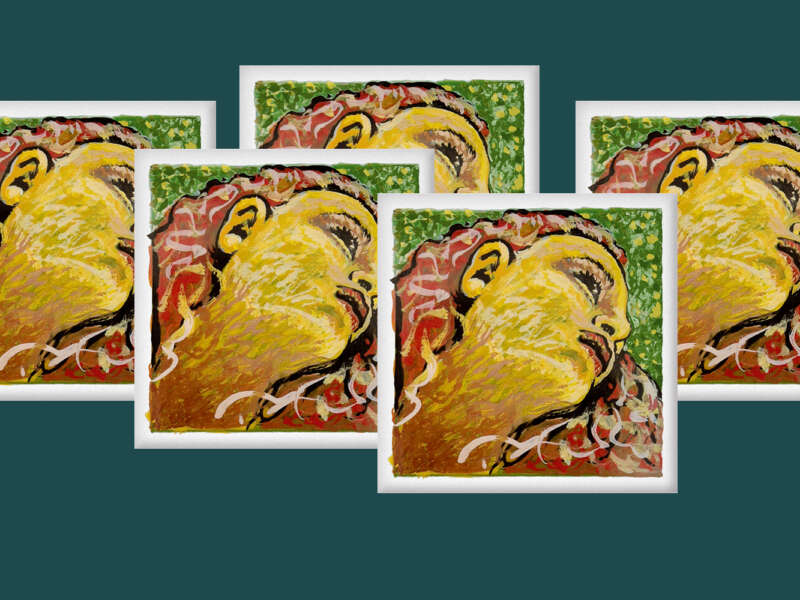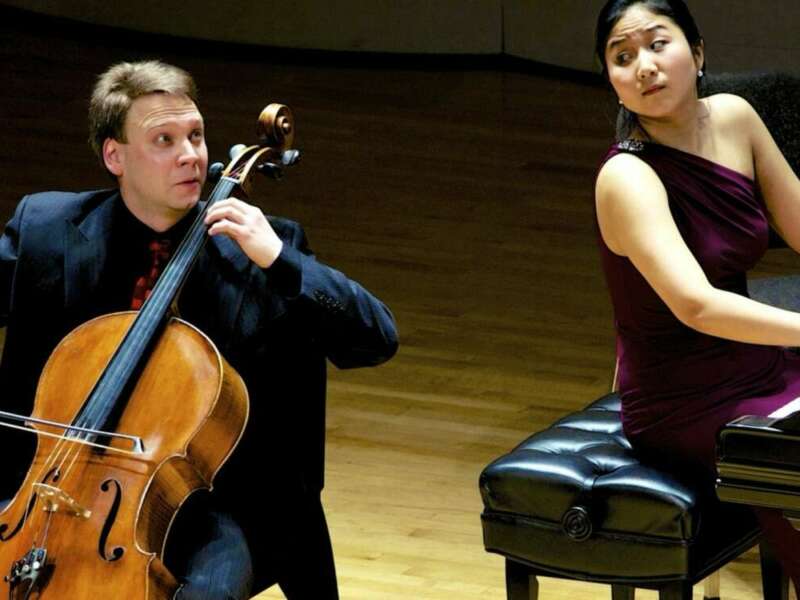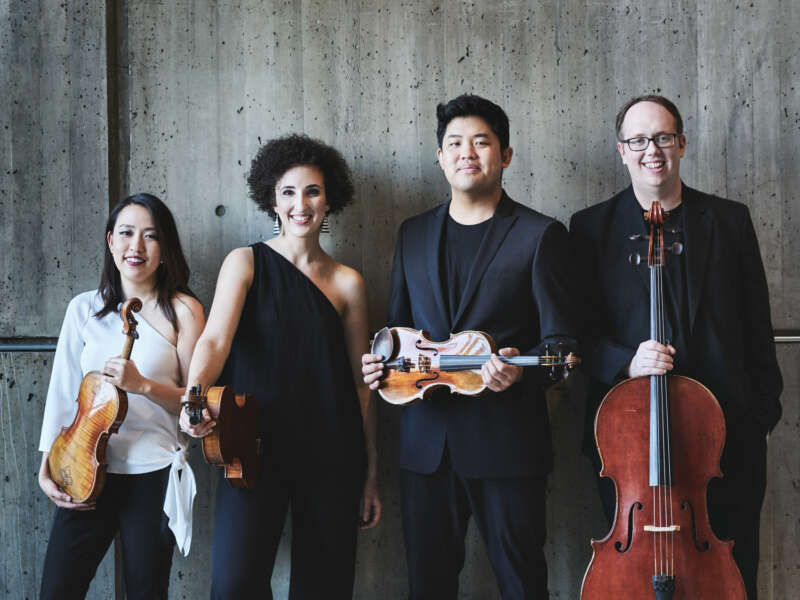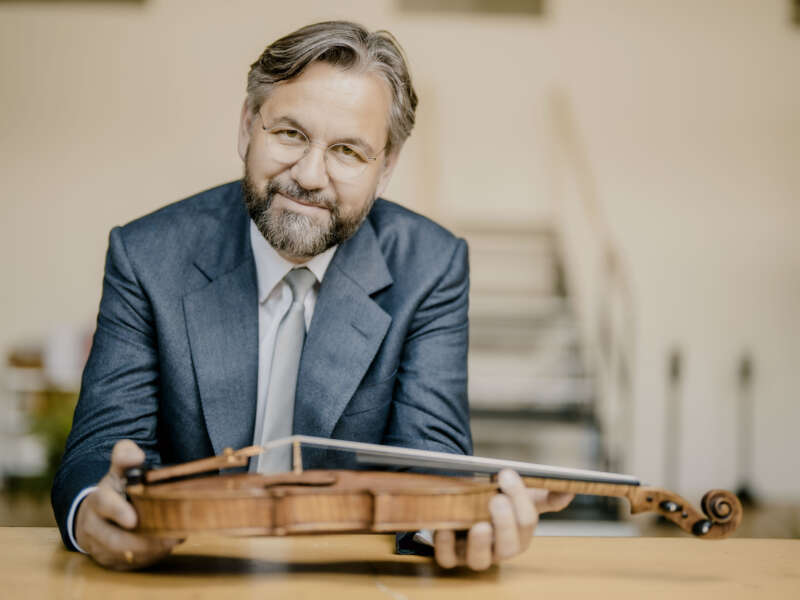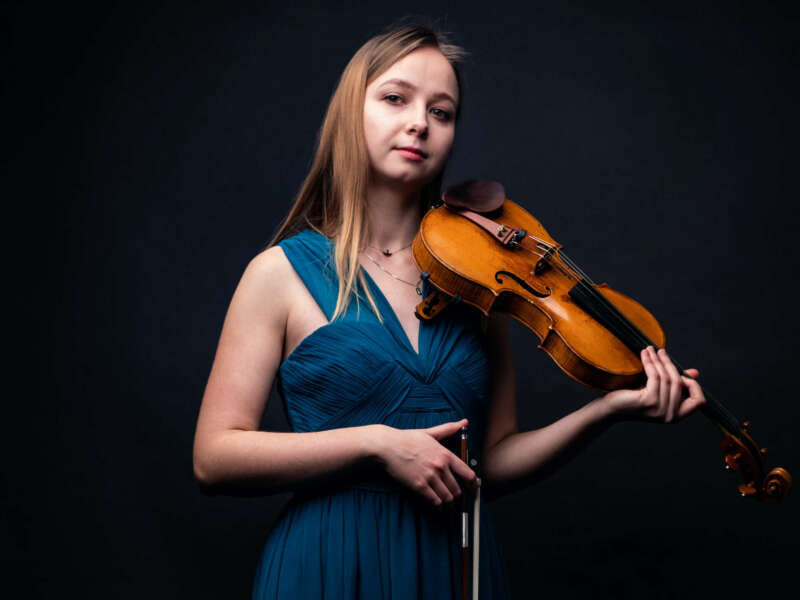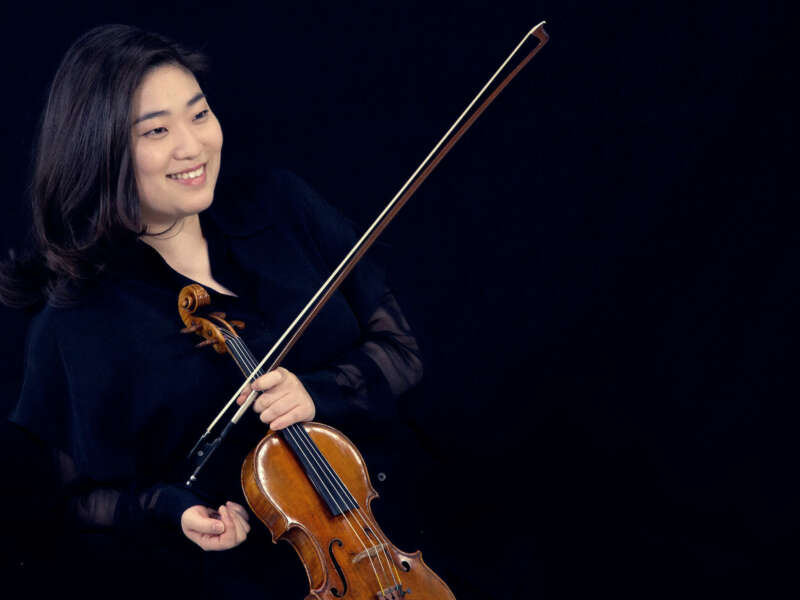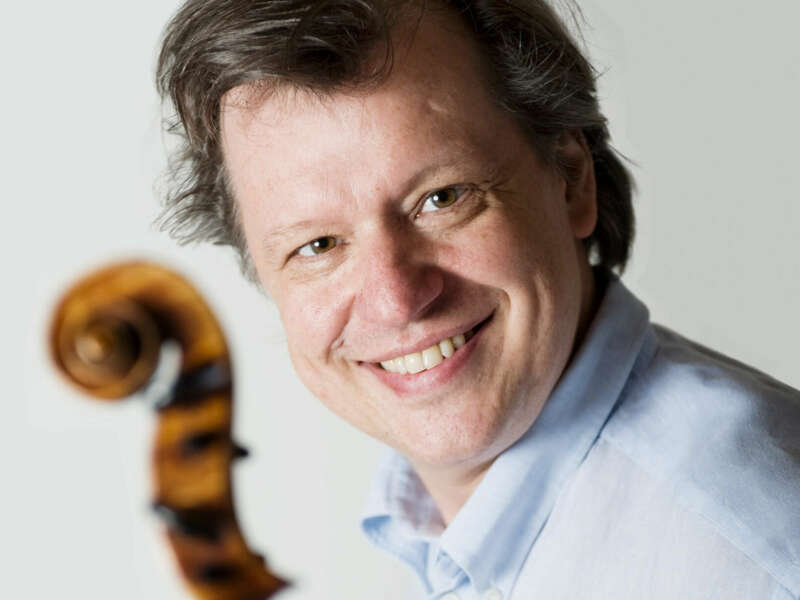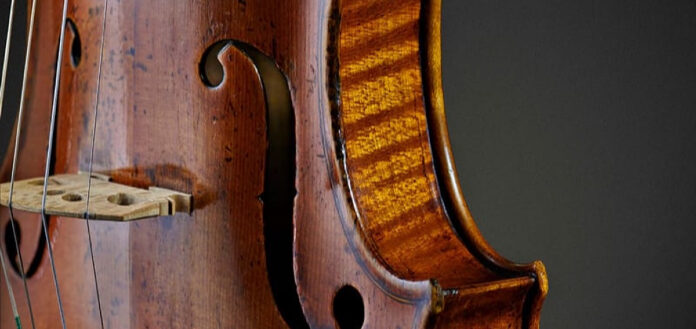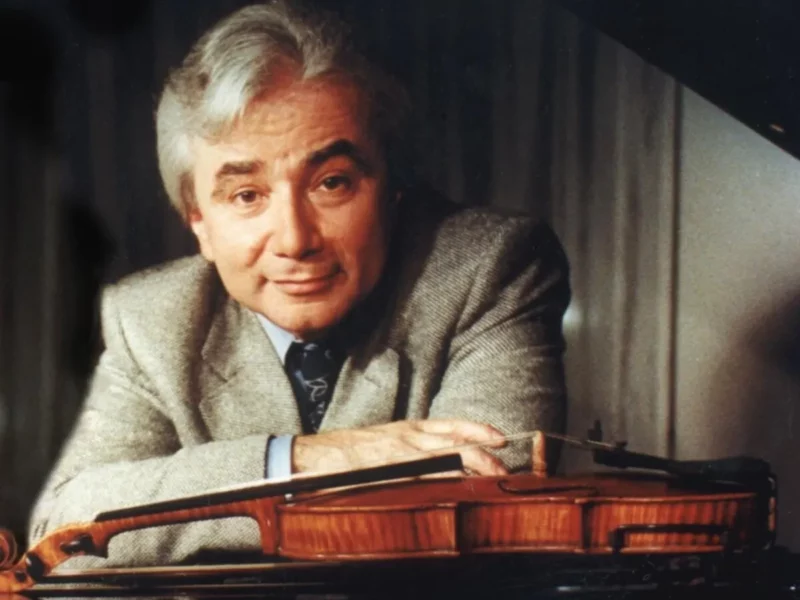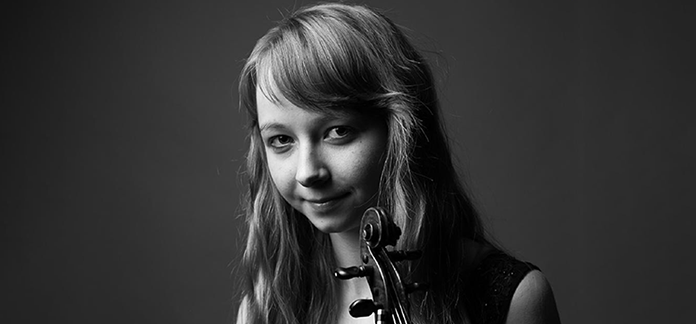Discover David Philip Hefti's "Feu d'artifice" for Solo Violin
The work was composed for the second edition of the Stuttgart International Violin Competition
The Violin Channel recently sat down with Swiss composer David Philip Hefti to learn more about "Feu d'artifice" (Fireworks), a piece for solo violin commissioned especially for the candidates of the 2024 Stuttgart International Violin Competition.
Organized by the Guadagnini Foundation and the Stuttgart University of Music and Performing Arts, the second edition of the competition took place in February 2024. You can read more about the 2024 winners and rewatch the competition at this link.
Tell us about “Feu d’artifice” that you composed for the 2024 Stuttgart International Violin Competition.
"Feu d'artifice" is a short composition in which the participants in the competition can demonstrate a wide range of their artistic skills, covering technical as well as musical and interpretative aspects. The work constantly oscillates between different emotional states and moods, and between free and precisely notated passages. All the tempo changes are made in relation to each other and are based on the fundamental tempo that is given at the end of the piece. Although sparks fly in this work, its focus is on cantilenas and shifting surfaces of sound, often moving in quartertones.
Where did the inspiration behind the piece come from?
The composition is a portrait of my three-year-old son Gian, to whom I also dedicated the piece. In contrast to his rather calm and well-balanced brother, his character and emotional range are enormous. On the one hand, he's the sweetest boy you could ever imagine, but on the other, he can be quite annoying! (laughs)
Of course, I'm aware that all children are like that... However, as the two extremes are so strong in my son, I decided to translate his character into music. When I listen to the piece now, I have to say that I did a good job! (laughs)
Did your process change knowing that the piece was being written for one of the most important violin competitions in the world?
I feel very privileged to have been able to compose for outstanding musical personalities, ensembles, and orchestras for three decades now. I have also composed compulsory pieces for other competitions. So when I started working on "Feu d'artifice," the routine was a positive one.
The great difficulty with the compulsory piece for Stuttgart was to avoid trying to fit everything into this short work. Of course, the participants should be able to shine by mastering technical challenges, shaping cantilenas, and presenting contemporary techniques. Nevertheless, the short composition should not be overloaded and should be as concise and atmospheric as possible. In this case, it was clear to me that less is more!
How does it feel to hear several excellent musicians interpret your work?
I was very lucky to hear my piece "Feu d'artifice" performed eight times by eight different, high-level performers in the second round of the competition. The score of "Feu d'artifice" is meticulously notated, so the corset is very tight for the performers. I was thrilled by the eight interpretations, as they were completely different, even though the musicians followed the score exactly. I experience this again and again and it shows that contemporary music can also be interpreted and must be interpreted. In this sense, there is no difference to early music...
Do you feel they played it the way you envisioned?
Absolutely. The level of the participants blew me away! The eight performances were so excellent that it was difficult to decide who should get the prize for the best interpretation of my piece. As already mentioned, I was particularly pleased that the eight performances were different, even though the musicians used exactly the same score. The outcome was eight mature and independent interpretations – and that's exactly what I was hoping for.
What advice would you give to a composer who is just starting out in their career?
A young composer should definitely trust what he has in his head, stomach or heart. However, notating this in the score is not easy, as there are many outside influences. He should also be endlessly curious and acquire a huge amount of knowledge by absorbing everything like a sponge. Add to this musical and especially extra-musical life experience and the young composer is already on the right path.
Watch Jakow Pavlenko, winner of the special prize, sponsored by Lions Club Stuttgart-Altes Schloss for the best interpretation of a commissioned piece perform David Philip Hefti's "Feu d'artifice" :
Born in Switzerland in 1975, David Philip Hefti studied at the music academies of Zurich and Karlsruhe, where his teachers included Wolfgang Rihm, Rudolf Kelterborn, and Cristóbal Halffter. His oeuvre encompasses some 100 works, including orchestral, vocal and chamber music. Hefti has enjoyed a working relationship of several years’ standing with artists — such as Juliane Banse, Patricia Kopatchinskaja, Lawrence Power, Hartmut Rohde, Baiba Skride, Jan Vogler, and Antje Weithaas. As both conductor and composer, he has worked with orchestras and ensembles including the Zurich Tonhalle Orchestra, the Symphony Orchestra of Bavarian Radio, the Deutsches Symphonie-Orchester Berlin, the Vienna Radio Symphony Orchestra, the Orchestre symphonique de Montréal, the Berlin Baroque Soloists, the Scharoun Ensemble Berlin, the Ensemble Modern. In 2013, Hefti was awarded the Composer Prize of the Ernst von Siemens Music Foundation, in 2015 the Hindemith Prize of the Schleswig-Holstein Music Festival and in 2023 the Composer Award of the International Classical Music Awards ICMA. In the current 2023/24 season David Philip Hefti has been Composer and Artist in Residence at the Zermatt Music Festival.
july 2025
august 2025



